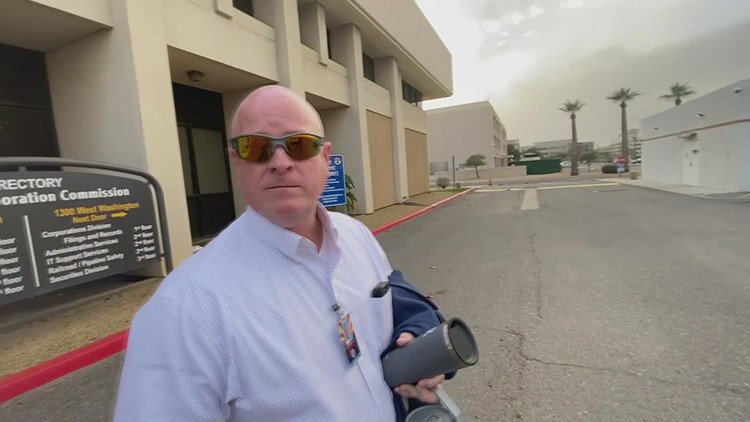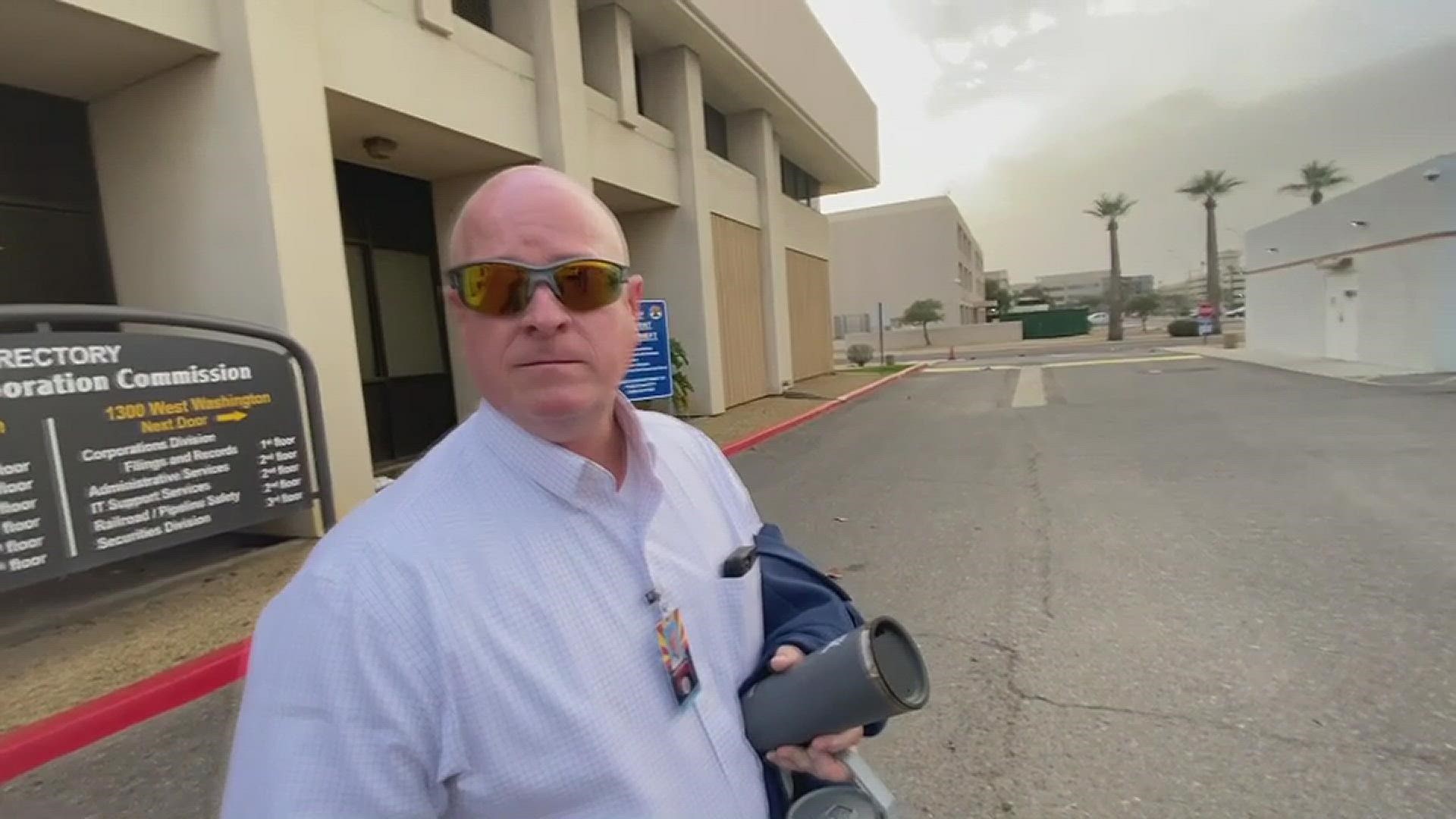PHOENIX — Three of five Arizona Corporation Commissioners determined Tuesday there was no merit to an ethics complaint involving another commissioner.
Newly elected Commissioner Kevin Thompson previously argued the complaint was based on speculation, conjecture and a misunderstanding of the ACC’s ethics rules. Thompson recused himself from voting on the matter.
“My only regret is to commission staff and fellow commissioners is that you have had to spend so much time digesting these political accusations,” Thompson said before the vote was taken.
The complaint was filed by longtime consumer advocate Abhay Padgaonkar last month.
As 12News reported, Thompson met with lenders and financial outfits that invest in Arizona utilities. The meetings over two days in New York were hosted by the American Gas Association, a coalition of natural gas companies.
RELATED: Complaint filed against new Arizona Corporation Commissioner
RELATED: Commissioner will change response to ethics complaint following 12News reports
Thompson posted about the meetings on social media in January and announced online he assured them the commission would create a more favorable regulatory environment for investors.
The commission’s current code of ethics states commissioners are not to communicate with people not registered as lobbyists who represent interests that could be impacted by ACC decisions. The code also states it is inappropriate for Commissioners to make promises on behalf of the commission or “implicitly promise” action to others.
Commissioners Jim O’Connor, Nick Myers and Lea Marquez Peterson voted to dismiss the complaint. Commissioner Anna Tovar abstained from voting, saying the process to address ethics complaints is “limited” and needs to be formally amended.
The commission met behind closed doors to discuss the matter with attorneys before voting.
While casting his vote, Commission Chair O’Connor said he believes there was “zero evidence” to support the allegation, the code of ethics was being “weaponized” and that current commissioners are “above reproach.”
“Our code of ethics came to us at a time our commission was experiencing real corruption,” O’Connor said. “These are very different times. We run clean elections candidates for these positions of both parties,” O’Connor said.
Thompson emphasized no current matters before the commission were discussed in the meetings and said ex-parte was not an issue.
“I have been transparent and open throughout this process,” Thompson said.
It remains unclear how the code of ethics should be applied. During the hearing, commission attorneys did not explain exactly why Thompson’s trip and comments on social media did not violate the ethics rules highlighted in Padgaonkar’s complaint. In fact, Commissioner Myers said commissioners and legislators took a trip just last week to meet with solar manufacturers and pointed out no one raised a red flag.
“Most of the people we talked to that day were not registered lobbyists but did have a significant financial interest in the outcome of policy brought before the commission,” Myers said.
The purpose of his comment was to suggest Padgaonkar cherry-picked an otherwise normal meeting and unfairly attacked Thompson.
Nonetheless, Myers‘ comment appeared to reveal that the code of ethics may need to be more specific, as Tovar argued.
Asked to clarify the code of ethics and the investigative process, the ACC’s senior counsel and executive director declined to comment in recent weeks.
A former commission chair, Bob Burns, told 12 News last week he considered private meetings with the utility investor community, especially during an open rate hearing, as inappropriate.
On Monday the National Association of Regulatory Utility Commissioners (NARUC) sent a letter to the commission stating that meetings between regulators and investors are appropriate and beneficial to both sides. Speaking to 12 News, the president of NARUC added the caveat that an individual state’s code of ethics should also be considered when deciding whether such meetings are appropriate.
Up to Speed
Catch up on the latest news and stories on the 12News YouTube channel. Subscribe today.




